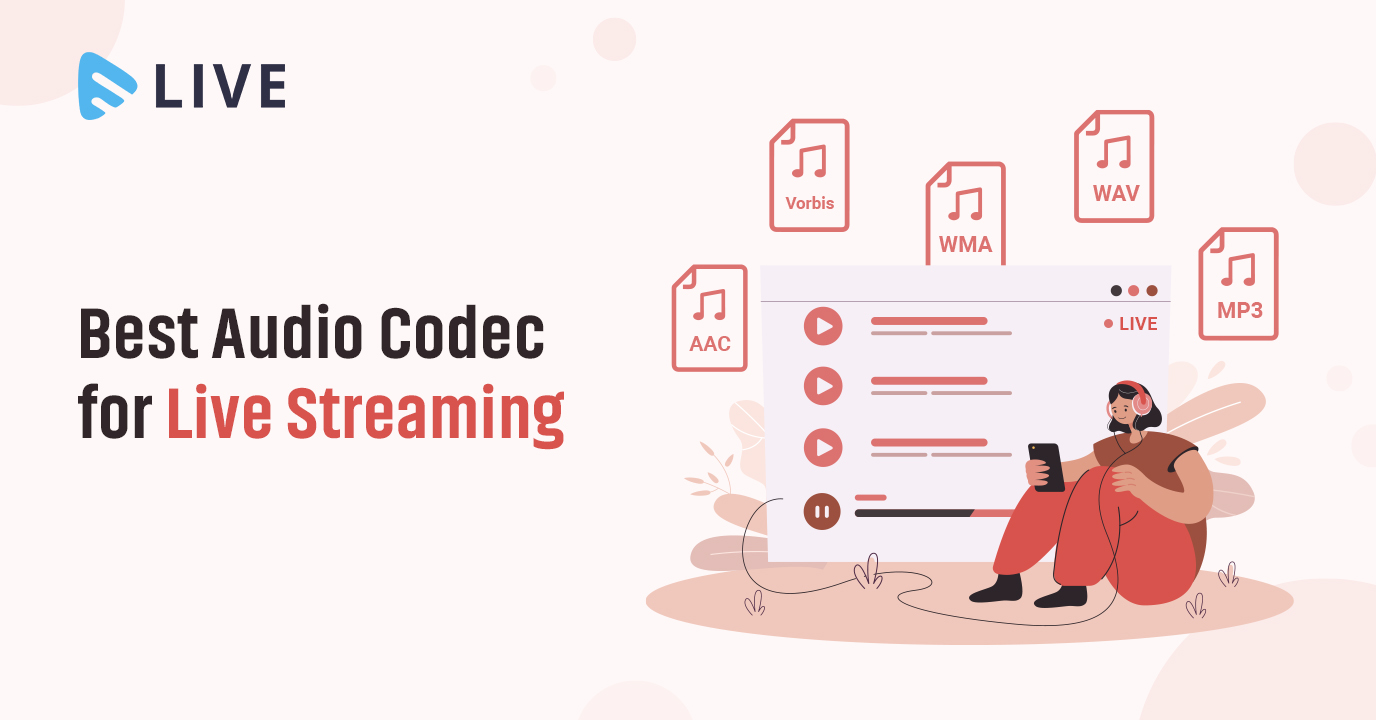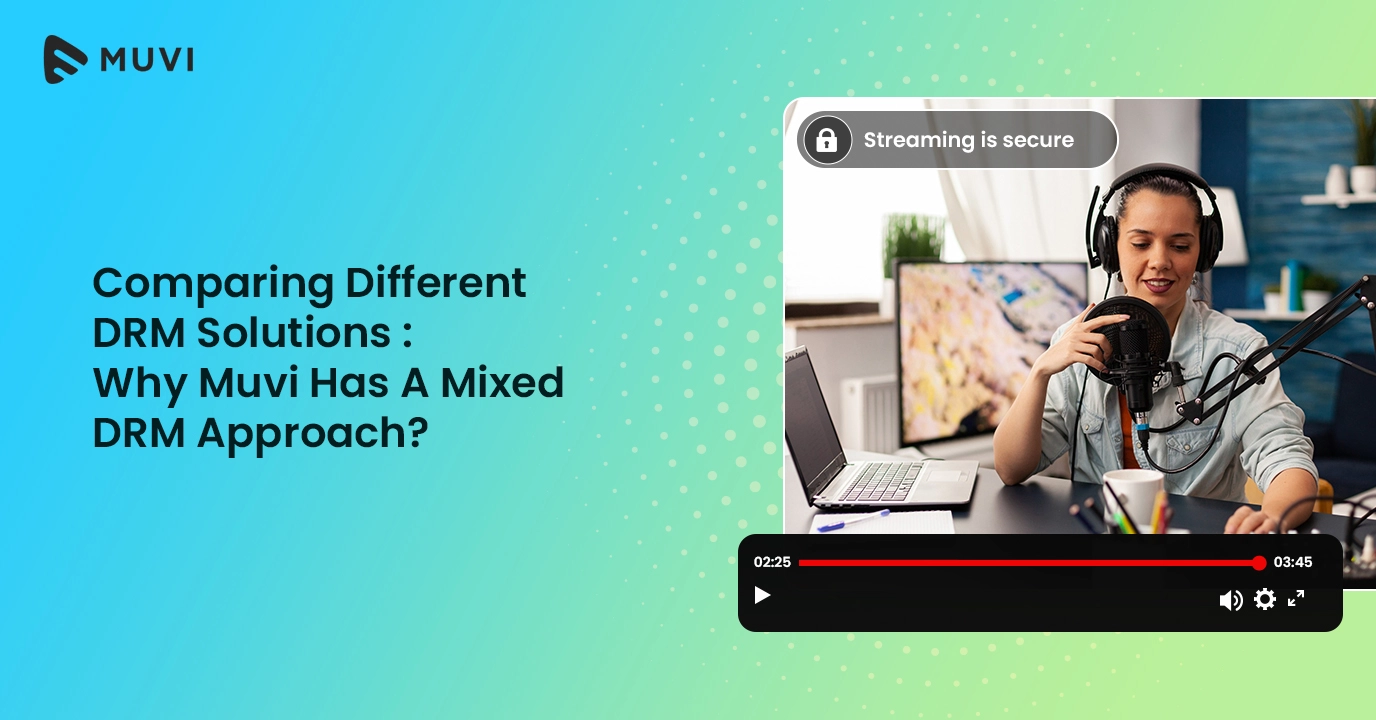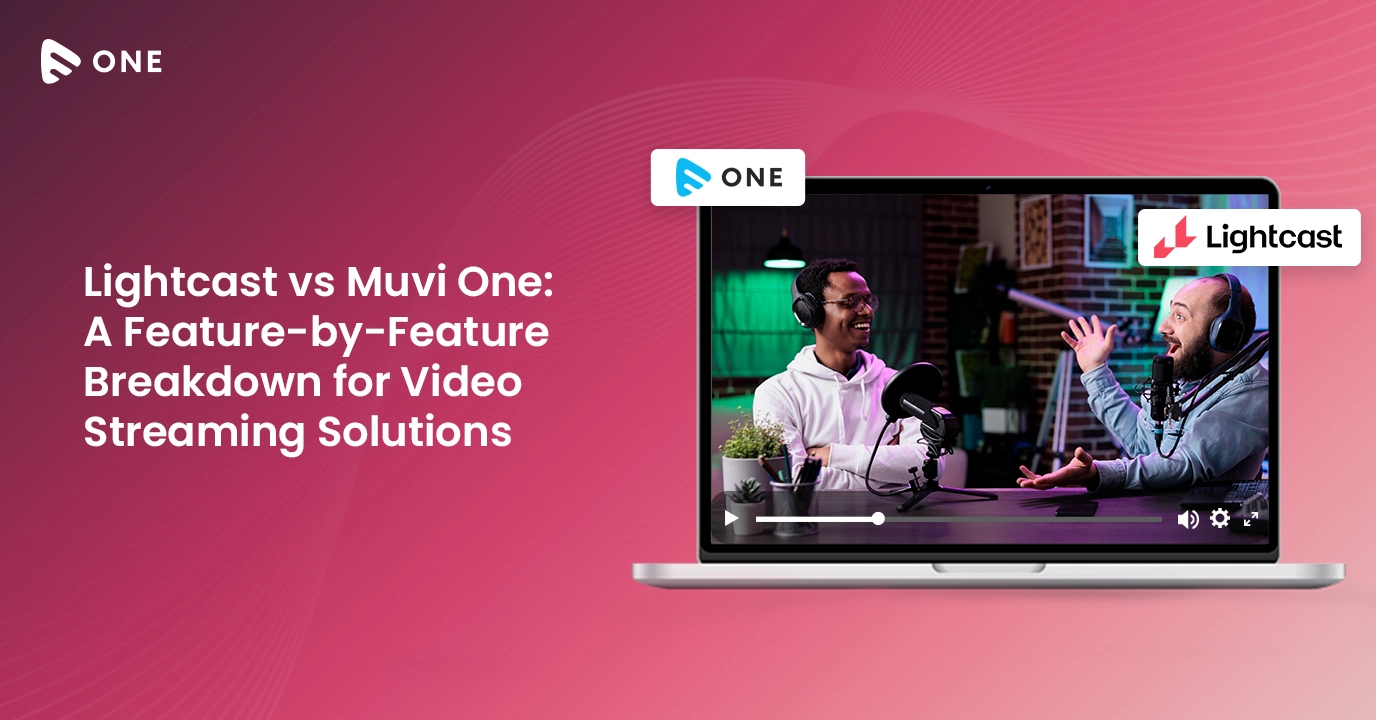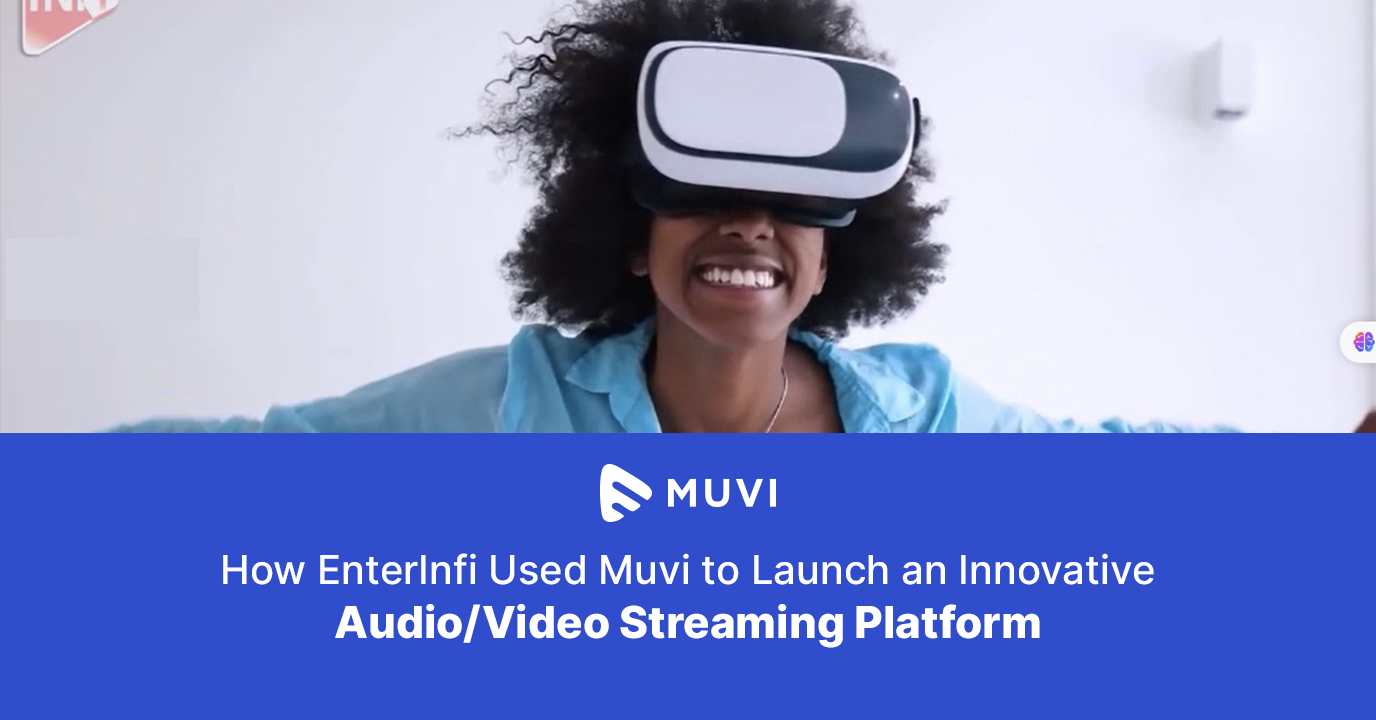When we think about live streaming, it’s mostly about the visual aspect that draws our attention while most of us ignore the equally crucial aspect of the audio. In order to maintain the quality of your live stream’s audio, you need to ensure that you are always using the best audio codec. In this blog, we will elucidate on the best audio codec for live streaming for making your live events stand out amongst the rest.
What is an Audio Codec?
A portmanteau that combines the words “coder” and “decoder”, a codec is a hardware or software tool for encoding and decoding multimedia files.
When a “RAW” or uncompressed audio file is captured, they are quite large in size and are not in a proper format to be stored or live streamed over the internet. Here’s where audio codecs come in. The audio codec compresses a large audio file removing unnecessary data into a digital format that can be stored and streamed over the internet.
The process is called encoding and it involves the task of tossing out extra information to reduce file sizes while maintaining as much quality as possible.
The codec also forms another function which is called decoding -the task of playing back an audio file that has previously been encoded.
Also Read: Cloud Video Encoding vs On-Premise : Pros, Cons and Beyond

Best Audio Codecs for Live Streaming
AAC
AAC is one of the most common audio codecs defined by MPEG-4 and is an improved version of the MP3 codec as it offers the same audio quality at a lower bitrate. It’s a widely supported standard used by popular video streaming websites like YouTube and is supported on Android and iOS as well.
AAC as a codec has been upgraded several times with the latest version being HE-AAC. HE-AAC is a closed source format but that does not make it less popular and is deemed as one of the most widely used audio codecs for live streaming on the internet today.
Also Read: How to Choose the Best Video Container Format for Live Streaming
MP3
MP3, which is technically called MPEG-2 Audio Layer III, is probably the most well known audio codec for live streaming till date. MP3 revolutionized the digital audio landscape in the 1990s as the files were much smaller in size allowing easy downloads over all kinds of audio devices over the internet.
MP3 is also revolutionary in bringing the era of portable audio players into the market like the ‘MP3 Players’ ousting the previously used CD players.
WAV
Waveform Audio File Format or WAV was developed by IBM and Microsoft, for storing an audio bitstream on PCs. WAV is still used as the format for uncompressed audio on Microsoft Windows with the encoding bitstream being linear pulse-code modulation format or the LPCM.
WMA
Windows Media Audio or WMA is a series of audio codecs developed by Microsoft and forms a proprietary technology of the Windows Media framework.
WMA codec was originally conceived as a competitor to the popular MP3 and RealAudio codecs. The WMA series consists of codecs like WMA Pro, WMA Lossless and WMA Voice, each designed with a unique set of functionalities. Microsoft has also developed a digital container format called Advanced Systems Format to store audio encoded by WMA.
Vorbis
Vorbis is an open-source codec headed by Xiph.Org foundation, originally designed to compete against codecs like AAC. Since the codec is mostly used in conjunction with the OGG codec, it is often referred to as OGG Vorbis.
However this audio codec unlike the MP3 and AAC lacks native support across devices. Since February 2013, the codec has been deprecated in favor of the more efficient Opus codec which is open source and non-proprietary.
Opus
The latest audio codec for live streaming, which is also considered as the next generation codec is the Opus, developed by Xiph.Org foundation. It’s an open source codec and royalty free, however, it is still not widely supported. As far as efficiency is concerned, Opus provides higher quality audio than any other lossy audio format.
So, What’s the Best Audio Codec for Live Streaming?
Comparing most parameters, our safest bet would be AAC and we would like to announce AAC as the audio best codec for live streaming.
The reason being AAC’s wide range of support across all devices and software platforms, including Android, iOS, macOS, Windows, and Linux. In fact, smart TVs and set-top boxes also support AAC. Hence for live streaming audio, AAC would be the best bet as your viewers can access the audio stream no matter what kind of devices they are using.
Also, blind tests supported the fact that AAC has better audio quality compared to MP3.
Muvi Live supports multiple audio formats, from MP3, WAV, AAC to OGG. So, you don’t have to worry about converting your audio library from one format to another!
Recommended Audio Bitrate for Streaming
Good audio bitrate for live streaming would be as follows:
- For a low quality live stream (360p) video, use 64 Kbps audio bitrate
- For a standard quality live stream like 480p and 720p video, use 128 Kbps audio bitrate
- Audio bitrate for 1080p live video would be 256 Kbps
Wrapping Up,
Although audio is crucial for live streaming, it is often ignored and can be a confusing topic. Hope we have been able to educate you about the most prevalent audio codecs for live streaming used in the present day.
With Muvi Live, you can live stream uninterrupted audio content to your listeners across the world. You can build fully customized audio live streaming apps and websites as per your business requirements.
Take a 14-Day Free Trial, now!



















Add your comment